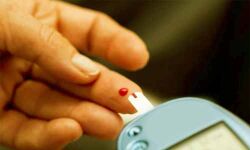- Home
- Medical news & Guidelines
- Anesthesiology
- Cardiology and CTVS
- Critical Care
- Dentistry
- Dermatology
- Diabetes and Endocrinology
- ENT
- Gastroenterology
- Medicine
- Nephrology
- Neurology
- Obstretics-Gynaecology
- Oncology
- Ophthalmology
- Orthopaedics
- Pediatrics-Neonatology
- Psychiatry
- Pulmonology
- Radiology
- Surgery
- Urology
- Laboratory Medicine
- Diet
- Nursing
- Paramedical
- Physiotherapy
- Health news
- Fact Check
- Bone Health Fact Check
- Brain Health Fact Check
- Cancer Related Fact Check
- Child Care Fact Check
- Dental and oral health fact check
- Diabetes and metabolic health fact check
- Diet and Nutrition Fact Check
- Eye and ENT Care Fact Check
- Fitness fact check
- Gut health fact check
- Heart health fact check
- Kidney health fact check
- Medical education fact check
- Men's health fact check
- Respiratory fact check
- Skin and hair care fact check
- Vaccine and Immunization fact check
- Women's health fact check
- AYUSH
- State News
- Andaman and Nicobar Islands
- Andhra Pradesh
- Arunachal Pradesh
- Assam
- Bihar
- Chandigarh
- Chattisgarh
- Dadra and Nagar Haveli
- Daman and Diu
- Delhi
- Goa
- Gujarat
- Haryana
- Himachal Pradesh
- Jammu & Kashmir
- Jharkhand
- Karnataka
- Kerala
- Ladakh
- Lakshadweep
- Madhya Pradesh
- Maharashtra
- Manipur
- Meghalaya
- Mizoram
- Nagaland
- Odisha
- Puducherry
- Punjab
- Rajasthan
- Sikkim
- Tamil Nadu
- Telangana
- Tripura
- Uttar Pradesh
- Uttrakhand
- West Bengal
- Medical Education
- Industry
Metoprolol not tied to clinically relevant high blood sugar in diabetics with HF: Study

USA: Initiation of metoprolol versus carvedilol is not associated with an increase in the risk of clinically relevant hyperglycemia or high blood sugar in older adults with heart failure and diabetes, finds a recent study.
The study findings are published in the journal Pharmacoepidemiology and Drug Safety.
Prior studies have shown metoprolol to be associated with worse glucose control compared to carvedilol. However, it is not unclear whether this is clinically relevant in older adults with diabetes and heart failure. To determine the same, Chintan V. Dave, Rutgers University, New Brunswick, New Jersey, USA, and colleagues conducted a US retrospective cohort study that utilized data from a 50% national sample of Medicare fee-for-service claims of patients with Part D prescription drug coverage (2007–2017).
The researchers identified initiators of metoprolol or carvedilol among patients with diabetes and heart failure. They were 1:1 propensity score matched on >90 variables.
The primary outcome was the initiation of a new oral or injectable antidiabetic medication (proxy for uncontrolled diabetes). Secondary outcomes included insulin initiation and severe hyperglycemic event (composite of emergency room visits or hospitalizations related to hyperglycemia).
Key findings of the study include:
- Among 24 239 propensity score-matched pairs (mean age 77.7 year; male (39.1%)), there were 8150 episodes of antidiabetic medication initiation among metoprolol users (exposure arm) compared to 8576 among carvedilol users (comparator arm) compared to corresponding to an adjusted hazard ratio [aHR] of 0.97.
- Metoprolol was not associated with a significant increase in the risk of secondary outcomes including insulin initiation: aHR of 0.98 and severe hyperglycemic events: aHR of 0.98.
"In this large study of older adults with heart failure and diabetes, initiation of metoprolol compared to carvedilol was not associated with an increase in the risk of clinically relevant hyperglycemia," concluded the authors.
Reference:
The study titled, "Risk of clinically relevant hyperglycemia with metoprolol compared to carvedilol in older adults with heart failure and diabetes," is published in the journal Pharmacoepidemiology and Drug Safety.
Dr Kamal Kant Kohli-MBBS, DTCD- a chest specialist with more than 30 years of practice and a flair for writing clinical articles, Dr Kamal Kant Kohli joined Medical Dialogues as a Chief Editor of Medical News. Besides writing articles, as an editor, he proofreads and verifies all the medical content published on Medical Dialogues including those coming from journals, studies,medical conferences,guidelines etc. Email: drkohli@medicaldialogues.in. Contact no. 011-43720751


